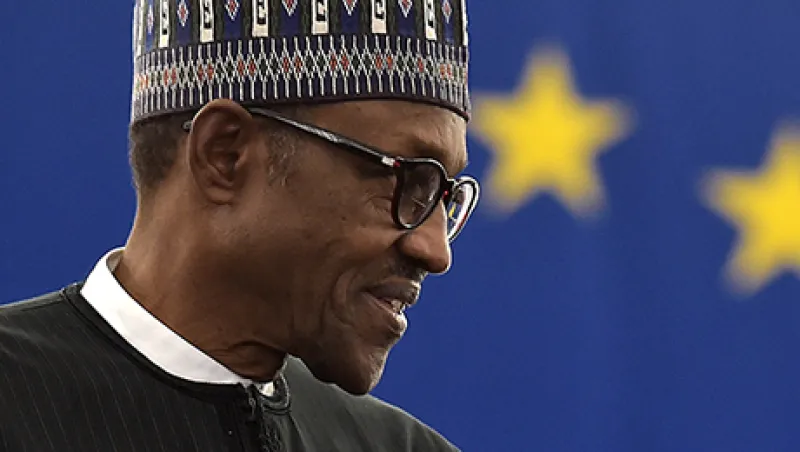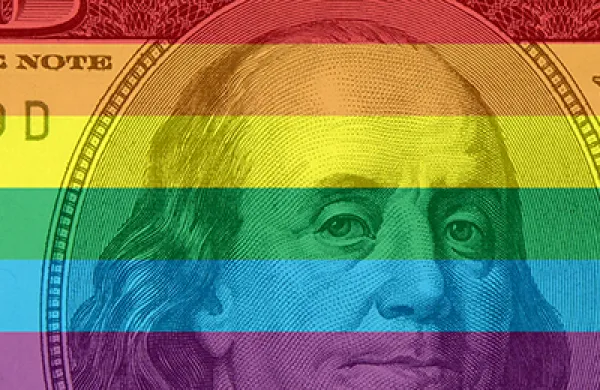Last spring Muhammadu Buhari won the presidency of Nigeria by promising to snuff out corruption and revive Africa’s largest economy. Nine months later the economy is reeling from the crash in the price of oil, and no one can accuse the country of being graft-free.
In mid-February, Buhari, 73, sacked the heads of 26 federal agencies and government-owned companies, many of whom had been part of former president Goodluck Jonathan’s old guard. Among those who got the ax was Aliyu Yahaya Gusau, director-general of the Budget Office of the Federation, who had served only six months of a four-year term. No reason was given for the massive change in personnel, although a standoff over alleged padding and kickbacks built into the 2016 federal budget probably didn’t help.
That Buhari waited so long to clean house has raised eyebrows. The former army major general previously ruled Nigeria for 20 months after seizing power in a 1983 coup, and during that time he waged a so-called War Against Indiscipline that included stunts like forcing civil servants who showed up late for work to do frog jumps. But Nigeria’s finances could use some of that self-restraint today.
In a bid to kick-start the nation’s $568.5 billion economy, Buhari proposed a record 6.1 trillion naira ($30.6 billion) budget for the year. But there were several apparent omissions or irregularities, including 10 billion naira in funding for the Ministry of Education that had no clear purpose on the line item. Such details were an embarrassment, given Buhari’s vow to battle corruption, and one the government can ill afford with oil expected to generate a paltry 30 percent of government revenue rather than the 75 percent it once did.
The president faces a government deficit of $15 billion, or roughly 3 percent of gross domestic product. In late January, Nigeria asked for $2.5 billion in emergency loans from the World Bank Group and another $1 billion from the African Development Bank.
The country’s foreign exchange reserves have plunged from nearly $50 billion a few years ago to just over $28 billion. The Excess Crude Account, a rainy-day fund, has dwindled to just $2.3 billion from a peak of $62 billion in September 2008, when petroleum prices touched $147 a barrel.
Nigeria isn’t exactly looking for a bailout from the International Monetary Fund — at least not yet — nor would Buhari necessarily welcome the idea. During his brief reign in the 1980s, he routinely squabbled with the IMF. The Fund’s managing director, Christine Lagarde, stopped in Nigeria in January on her first official visit of the year and called on the government to abandon the naira’s peg to the U.S. dollar to relieve some of the strain on public finances.
Corruption packs a budgetary wallop too. According to numbers recently made public by Abubakar Malami, Nigeria’s attorney general and Justice minister, over the past 12 years the government has recouped more than 2 trillion naira in looted federal money. Sambo Dasuki, who served as national security adviser in ex-president Jonathan’s administration, has been detained over $2.1 billion in missing funds that were intended for munitions to fight Islamist insurgency group Boko Haram. Other former senior officials also face corruption charges.
Many observers at home and abroad remain unconvinced of any progress, though. About three quarters of Nigerian respondents to a Transparency International poll published in December said they thought corruption had risen during the past year. The organization ranked Nigeria 136th of 175 countries for its perceived level of corruption in 2015. PricewaterhouseCoopers recently claimed that Nigeria’s economy could have been 22 percent larger in 2014 if corruption were on a par with that of Ghana, No. 56 on Transparency International’s list.
Talk about damning with faint praise.
Follow Anne Szustek on Twitter at @the59thStBridge.





